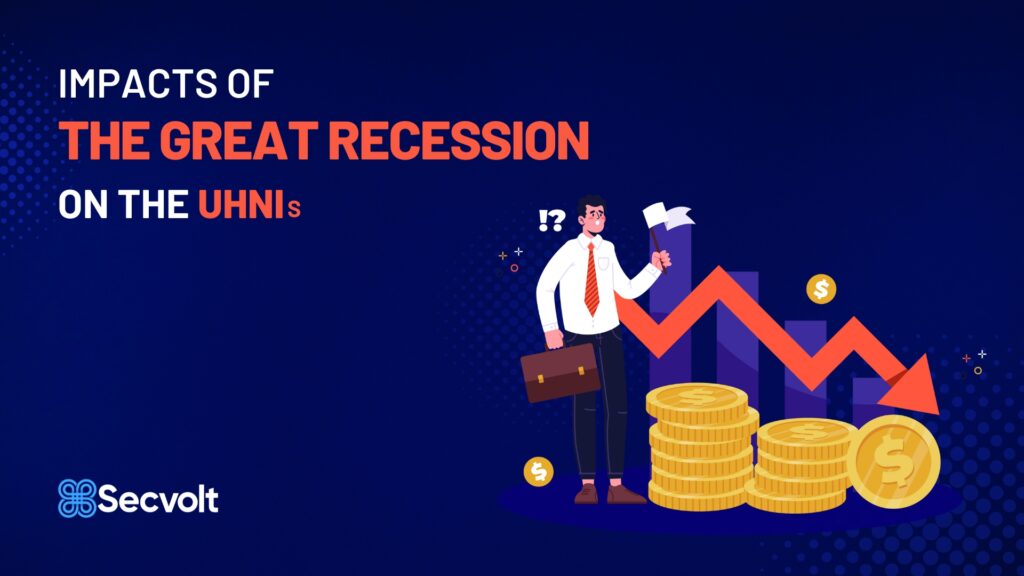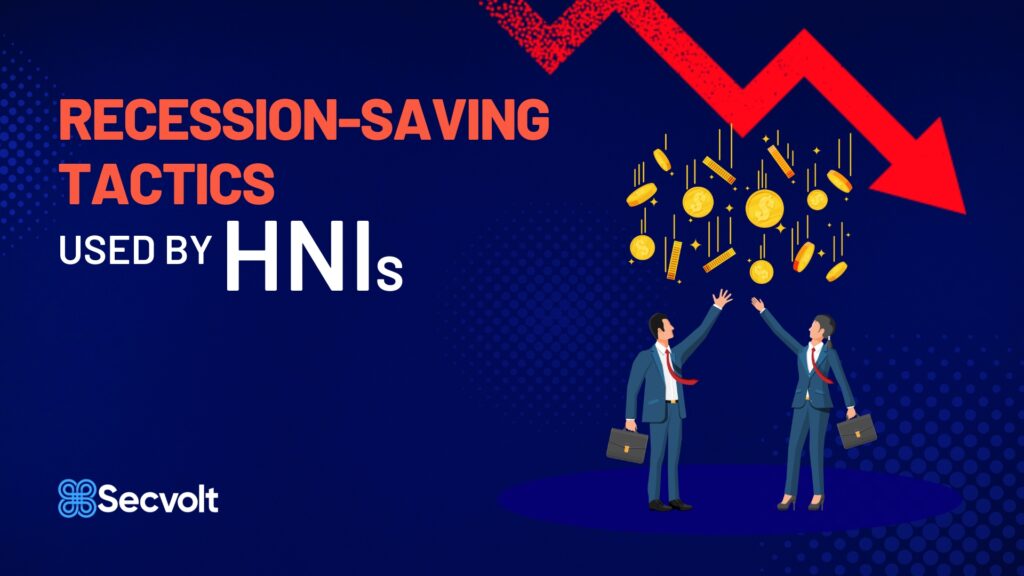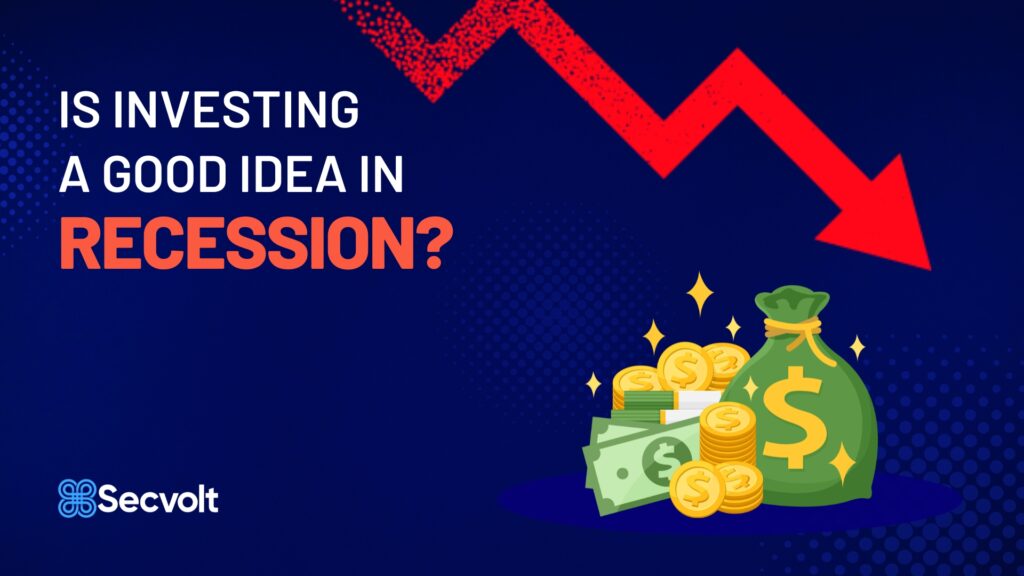
The Rich V/s The Great Recession~ Who Wins In The Recession?
The Great Recession is sweeping the world. Many questioned whether the wealthy would be able to weather the storm or if the economic collapse would destroy them. The recession turned out to be more complicated than anticipated. As with every economic downturn, some people and groups are more likely to be affected than others. In this case, one group that has been particularly affected is the rich one. While the wealthy often have more resources to weather economic storms, they may also be more invested in financial markets and industries that will be experiencing a hard hit by the recession.
Some argue that the wealthy are more likely to come out on top in a recession, as they have the financial resources to take advantage of opportunities and make strategic investments. Thus, there are two sides to this misery, the one in which the ‘rich’ win and the one in which they lose.
In this article, we will discuss who UHNIs are and what kind of impacts they face during a recession. We will also talk about their strategies and how they stand strong against economic collapses.
Let’s start from scratch.

Who Are Ultra-High-Net-Worth Individuals?
An ultra-high-net-worth individual (UHNWI) is defined as someone with a net worth of more than $30 million, including their principal property. People in this group tend to be the wealthiest in the world, controlling a sizable amount of global wealth.
But economic meltdowns are the worst, and they tend to affect each and every individual, including the HNIs. In the coming segment, let’s look at the Great Recession’s effects on rich/wealthy people.

Impacts of The Great Recession on The UHNIs
While the recession affects people of all income levels, many might think it hardly affects the super-rich. But that’s not the case. Those at the top of the income spectrum are also not immune to its effects. Here are a few ways in which the Great Recession impacts the rich:
- Financial Market Volatility: Recessions can cause high volatility in the financial markets, impairing the value of UHNI assets. This can result in enormous losses for UHNIs, especially if they have a significant amount of their wealth invested in equities, real estate, or other volatile asset types.
- Income Reduction: In a recession, UHNIs’ income may be reduced due to the impact of the economic downturn on their enterprises or assets. This is especially difficult for UHNIs who rely on their income to preserve their high net worth.
- Difficulties In Obtaining Credit: UHNIs may have trouble obtaining credit during a recession since banks and other financial institutions may be more unwilling to lend owing to the increased risk of default. This might make it difficult for UHNIs to make new investments or fund significant acquisitions.
- Reduced Demand for Luxury Products and Services: During a recession, UHNIs may witness a fall in demand for the luxury goods and services they sell or supply, as customers may be more careful with their spending. This can have an impact on the profitability of UHNI enterprises or investments.
- Increased Taxes: The recession may also lead to changes in government policies, such as increased regulation or taxes on the wealthy. At times of recession, governments may seek to collect revenue to solve budget gaps created by the economic slump. This can lead to lower UHNIs’ net worth and discretionary income.
Thus, these are some consequences for the affluent, and since they are wealthy, the consequences are more severe for them. But in times of recession, they use their recession-saving tactics to get out of this whole downturn.
Let’s discuss the saving tactics used by the HNIs during a recession.
If you need some ideas about what to read next, here they are:
- How Does Recession Affect Retirees?
- Recession Or The Next Great Depression? How To Survive And Thrive Afterward
- Can Recession Be A Good Thing For Businesses?

Recession-Saving Tactics Used By HNIs
Here are some possible recession-saving tactics that are used by high-net-worth individuals (HNIs) during a recession:
- Expense Reduction: HNIs may search for methods to reduce their expenditures, such as lowering their spending on luxury goods and services or negotiating lower prices for goods and services they require. This can assist them in saving money and reducing their outflows.
- Increasing Income: The HNIs search for the best investment during the recession to boost their income, such as looking for extra sources/ventures of income, investments, or negotiating higher service costs. This might assist them in overcoming any income loss due to the economic slump.
- Investing In Safe-Haven Assets: HNIs may opt to invest in safe-haven assets such as gold and government bonds and hedge funds like Secvolt. These assets tend to keep their value better. This can assist in preserving their wealth and give them a financial buffer.
- Diversifying Assets: They can diversify their investments by distributing their money across several asset classes and industries. This can assist in mitigating the effect of any losses incurred as a result of the economic slump.
- Seeking Expert Guidance: High-net-worth individuals (HNIs) may seek the advice of financial advisers or other professionals to help them navigate the recession and make educated decisions regarding their investments during the recession and other financial problems. This can assist them in minimizing losses and maximizing earnings.

Is investing a good idea in recession?
Recession, depression, and inflation are all influenced by money and its moods, affecting people of all classes & income groups. This recession might be awful too, yet it may give you the most appealing investing prospects. So if you are wondering whether investing at this time would be helpful, the answer depends on your choice of selecting the investment area.
Some businesses may be undervalued in the market. Rest must have a business model that makes them more resilient to economic downturns. Hence, when you make up your mind for investment, ensure to understand the risk management and then put your trust into an asset or a company or a fund.
Moreover, financial markets follow a cyclical pattern of expansion, peak, recession, trough, and recovery. So far, every recession has been followed by a comeback, albeit the recovery hasn’t always been massive or swift.
Furthermore, enterprises do not all behave similarly at various stages of the business cycle. Some may take years to recover from a recession; others may never recover. When you invest, you might gain or lose money. You will not incur losses if you do not invest, but you may miss out on the early phases of recovery, or inflation may reduce the purchasing power of your funds over time.
In the final section, let us figure out the answer to our primary question, ‘who wins in the recession’ & also explore a hedge fund that can help you combat the recession with its extraordinary strategies & systems.
The Bottom Line
Ultimately, the answer to the question of “who wins in a recession’’ depends on various factors, including an individual or group’s financial resources, the specific industries in which they are invested, and their ability to adapt and make smart financial decisions during difficult times.
And if you are willing to build something in this recession, it could be a good time to invest in your portfolio. Leverage & short-term strategies are the kind of limitations that many investment options might face, but hedge funds do not. This allows a hedge fund to take on a higher level of risk and pursue a broader range of investment opportunities.
To win in this recession, consider investing with Secvolt, a leading hedge fund managed by a team of qualified and experienced professionals. Secvolt’s team employs a mix of classic and calculated investing techniques like diversification of portfolio & providing an excellent risk management system to achieve exceptional results for their investors.
With a track record of success and a commitment to transparency and accountability, Secvolt is an ideal choice for people who want to maximize their wealth, even during the recession.





